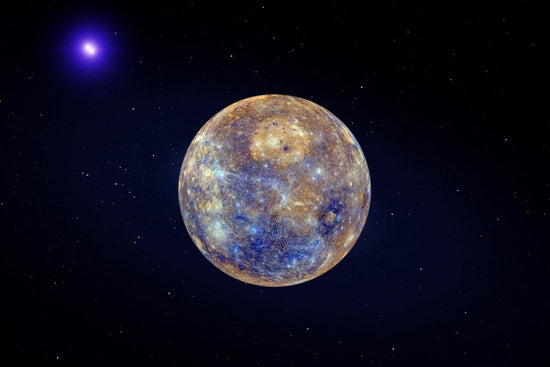We recognize that part of our responsibility as a business is to inspire human beings to live more intentionally. As a home & personal care brand, we feel it’s vital to take a stance against animal testing and animal derivated ingredients in an industry that is guilty of demanding it.
Simply put, we believe that the products that are in our homes have a serious impact on our bodies and environment. This understanding coupled with a deep appreciation for the natural world, came about our line of plant-based home & personal care products.

We're a mission-driven B Corp, commited to human health and our waterways.
In an industry filled with greenwashed statements like “all-natural” and “cruelty-free”, we felt the need to substantiate our values with a third-party certification. In May of 2018, our products became Vegan certified by the Vegan Awareness Foundation, allowing us to solidify with our stakeholders the commitment we hold to our collective health and environment. This certification confirms that the ingredients we utilize to make our products are not only plant-based but also free of animal testing.

Vegan Action is a 501(c)3 nonprofit organization which works to eliminate animal suffering, reduce environmental impacts, and improve human health through a vegan diet.
Reasons for Going Vegan
We’re happy to present a few of the many benefits of veganism on this World Vegan Day, November 1st, 2019. For us, there are three main pillars we stand on in our pursuit to create vegan products. We've found that these three values- health, environment, and ethics generally play into the decision-making process of anyone making the effort to eliminate animal products from their lifestyle.
Health
Health-based vegans usually start out from a Netflix documentary, or near-death experiences. And for good reason- plant-based diets are proven to reduce your chance of heart disease, type 2 diabetes, and overall mortality (1). Although many people blanketly shun any animal byproducts from their food and cosmetics, not all vegan foods and products are innately healthy. This is prevalent in the beauty industry, where brands emphasize that a product is “plant-based” or “cruelty-free”, yet there are still harmful fillers and chemicals in the ingredient list such as “fragrance”, alpha and beta hydroxy acids, parabens, and phthalates (2).

The Environmental Working Group's motto is, "Know your environment. Protect your health."
Beware of unsubstantiated claims, and always read the ingredient list before trusting that a product is clean enough for your skin or home. The Environmental Working Group’s Skin Deep Database is a fantastic resource for digging in deeper to the safety of the ingredients that comprise your personal care products.
Environment
Environmental vegans know that animal agriculture can wreak havoc on the local environment. Animal agriculture requires clearing land, heightened demand on our water supply and the use of damaging fertilizers- all components leading to increased concentrations of greenhouse gases (GHG) which expedite climate change.
Photo by Eclectic Jack
Specifically linked to animal agriculture is the harmful greenhouse gas, methane, a hydrocarbon gas that is thirty times as damaging to the atmosphere as carbon dioxide. Methane is derived from the decomposition of waste in landfills and agriculture and ruminant digestion of domestic livestock (3).

Methane Infographic by Inside Climate News
Methane is not the only byproduct of animal agriculture, just consider the impact it has on our waterways including the water we ultimately drink. Waste runoff from large farms seeps into the ground and works its way into the water tables. This causes an increase in pathogens and nitrogen, spreading disease and causing devastating algae blooms in bays, lakes, and streams. Straining our resources and environment for the sake of home and personal care products? We see no fit.
Ethics
Ethical vegans abstain from eating meat because of the abuse animals suffer in factory farming, scientific study, and even just slaughter. Some animal products such as eggs and dairy may seem innocent enough. However, milk is produced by females to provide milk for their young. Especially in an industrial farm, the baby calf is separated from her mother moments after birth and the mother is milked to exhaustion. Boys are soon to be butchered, while girls look forward to a life of forced insemination, pregnancy, and their calfs being ripped away moments after birth while they remain standing, being milked until they’ve run out their “usefulness”.

Photo by Albert Gunet
Additionally, every year in the US, over 100 million animals are burned, crippled, poisoned, and abused in labs for testing ingredients in cosmetics, pharmaceuticals, and other applications. Sadly, 92% of the experimental drugs deemed safe and effective for the animals tested fail in human clinical trials because they do not work or are too dangerous (4). This proves that animal testing for home and personal care goods is by large and wide, not the answer.
An additional ethical dilemma to consider how food insecurity affects nearly every community across our country, yet the US is one of the world’s wealthiest nations (5). These reasons demand that we lessen our culture’s insistence on animal-derived products and foods because it simply is not able to be sustained.
Combining Aspects of Veganism
Of course, many vegans and vegetarians use a combination of health, environmental, and ethical concerns to dictate their hierarchy of values. For instance, those who refrain from eating meat due to factory farming may be aware that 70% of pesticides used in the US are applied to agriculture, being consumed by animals and bioaccumulating into humans. This covers a health and environmental impact (and even ethics, when you consider the health of the livestock consuming pesticides and getting sick).
Still, others may embrace the obvious health benefits of cutting out meat from their diet, but not be overly concerned with the well-being of an animal raised to be slaughtered. Though, even in choosing a health-based vegan lifestyle, they support the overall ethical treatment of animals.

Vegan Lip Balm features candellia wax, avocado & coconut oils for maximum plant-based hydration.
Whether you choose veganism to live a healthier lifestyle, protect the environment, or simply to protect the animals, know that you are using your willpower to make a positive impact on the world around you. And when consumers and businesses say no to products and foods containing animal derivatives, we create systematic change due to a decreased demand for these practices. We hope you consider the impact that the goods you purchase and use have on not only yourself but also on our collective health, environment and code of ethics. Happy World Vegan Day!
Looking for more testimonials on why people choose to go vegan? This discussion forum is a great reference page- https://outwittrade.com/how-to-convince-people-to-go-vegan/
References:
- Harvard T.H. Chan School of Public Health. (2019, October). Vegan diet can benefit both health and environment. Retrieved from https://www.hsph.harvard.edu/news/hsph-in-the-news/vegan-diet-health-environment/
- Environmental Working Group. (2019, October). Top tips for safer products. Retrieved from https://www.ewg.org/skindeep/contents/top-tips
- NASA Global Climate Change. (2019, October). The Causes of Climate Change. Retrieved from https://climate.nasa.gov/causes/
- People for Ethical Treatment of Animals. (2019, October 6). Top Five Shocking Animal Experimentation Facts. Retrieved from https://www.peta.org/features/top-five-shocking-animal-experimentation-facts/
- Vegan Action/Vegan Awareness Foundation. (2019, October). To Fight Hunger. Retrieved from https://vegan.org/about-veganism/





